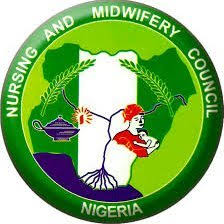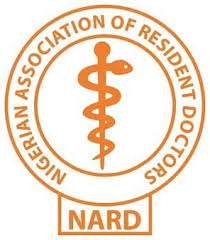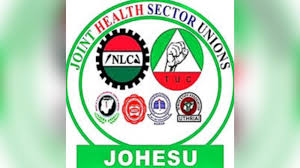The meeting critically appraised contemporary matters in the pharmaceutical sector and the totality of the health system in Nigeria. After a careful evaluation, the national council came up with the following recommendations and resolutions:
1.​Council commended the APC administration for its sheer doggedness to embark on constitutional reforms in the country. Council however drew attention of a recommendation that proposes to move drug matters which are presently on the Exclusive List (item 21 of part I of the second schedule of the 1999 constitution) to the concurrent list. Council reminded the APC administration and the National Assembly that all successive federal constitutions from independence have always placed drug matters like in most other responsible and sensitive countries.
Council posited it will be extremely dangerous for an evolving country like Nigeria with a track record of poor security checks and extremely wretched regulatory controls to contemplate the possibility of at least 37 licencing authorities for product and premises licensure in Nigeria.
Council warned that an attempt to place on concurrent list will ONLY seriously amplify the dimensions of the fake drug syndrome, drug misuse and abuse as well as other major aberrations in drug distribution endeavours.
2.​Statutory responsibilities of the consumer protection council (CPC)
Council lauded the recent ruling of the Federal High Court, Abuja which in a landmark ruling in December 2017 declined to approbate any responsibility to CPC in its bid to partly regulate and control pharmacy practice as well as exercise oversight responsibility on the pharmacy profession in Nigeria.
Council advocated strong collaborations between the PCN which has specific powers in law to regulate and control pharmacy practice in all its aspects and ramifications in Nigeria and other agencies like the CPC.
Council therefore counseled that when breaches are brought to the attention of the CPC, the envisaged collaborative will dictate that CPC reports such cases to the PCN to enable it invoke appropriate sanctions.
3.​Council called for a return to full scale harmony at the secretariat of the NHIS. Council reviewed the poor coverage rate of social health insurance in Nigeria (less than 3%) after 12 years.
Council therefore for the umpteenth time demanded proper definition of what constitutes a primary care centre, ensure that lawful payment mechanisms are entrenches and check the unproductive drift of the NHIS which should ideally be a private sector driven agenda from the unfortunate inclination to a public sector project.
4.​Council frowned albeit very seriously at the slow pace of actualizing central internship placements of interns in all cadres of health professions in Nigeria by Federal Ministry of Health.
Council went memory lane to remind the Federal Ministry of Health that it was actually the PCN that blazed the trail by submitting a proposal to the Health Minister to commence central placement for interns in the pharmacy profession.
Council admonished the Federal Ministry of Health to commence the central internship placement as a Federal Ministry of Health initiative to eliminate bottlenecks that appear to unduly delay Federal Executive Council interventions in an otherwise noble agenda which is gradually being jeopardized.
5.​Council lamented the unfortunate delay associated with the adjustment of CONHESS circular as was done with CONMESS scale since January 2014 and tinkered with for another round of increment boosted with enabling circulars within four (4) weeks by the Federal Government.
Council expressed anxiety at the level of restiveness of healthworkers which has led the health sector unions and AHPA to declare another 21-day ultimatum to the Federal Government effective February 8, 2018. Council implored the Federal Government to immediately convey necessary approvals to avoid another round of morbidity and mortality imposed on Nigerians.
6.​Council encouraged the Federal Ministry of Health to facilitate through the template of the National Council on Health an enabling policy to have an IT platform which centralizes information about registered drugs and products, registered pharmaceutical premises including business partners under the tripartite stakeholding of the PSN, PCN and NAFDAC in an arrangement that the Federal Ministry of Health guarantees at all times.
7.​Council strongly urged the NUC to finalise its working arrangement with the WAPCP to open windows for students of the college to embark on academic postgraduate training with Nigerian universities through specially worked out channels to speedily conclude their masters and Ph.D programmes.
8.​Council approved a special training for media personnel on drug abuse and misuse in line with its corporate social responsibility outputs.
Council reasoned this training which will provide detailed insights to abuse of codeine and other narcotics medicines as well as drug misuse episodes in the health system.
Council endorsed the proposal of PCN, NIPRD, NAFDAC to collaborate with the PSN on its training proposal.
9.​Council deplored the non-appointment of pharmacists on the Boards of Federal Health Institutions as representatives of other health professionals as provided for in the Teaching Hospital Act.
Council advised the Federal Government to adopt globally inclined imperatives that places premium on the availability of safe and efficacious drugs in the health systems of any nation.
Council insisted that credible healthcare is grounded on a flawless drug supply scheme which only registered pharmacists can drive.
Finally, the National Council enjoined all pharmacies to continue to excel in service rendition to consumers of health, while the leadership of PSN continues to work assiduously with stakeholders and government to redress the myriad of challenges ravaging the practice environment.
Pharm. Ahmed I. Yakasai, FPSN, FNIM
Pharm. Emeka Duru
National Secretary




